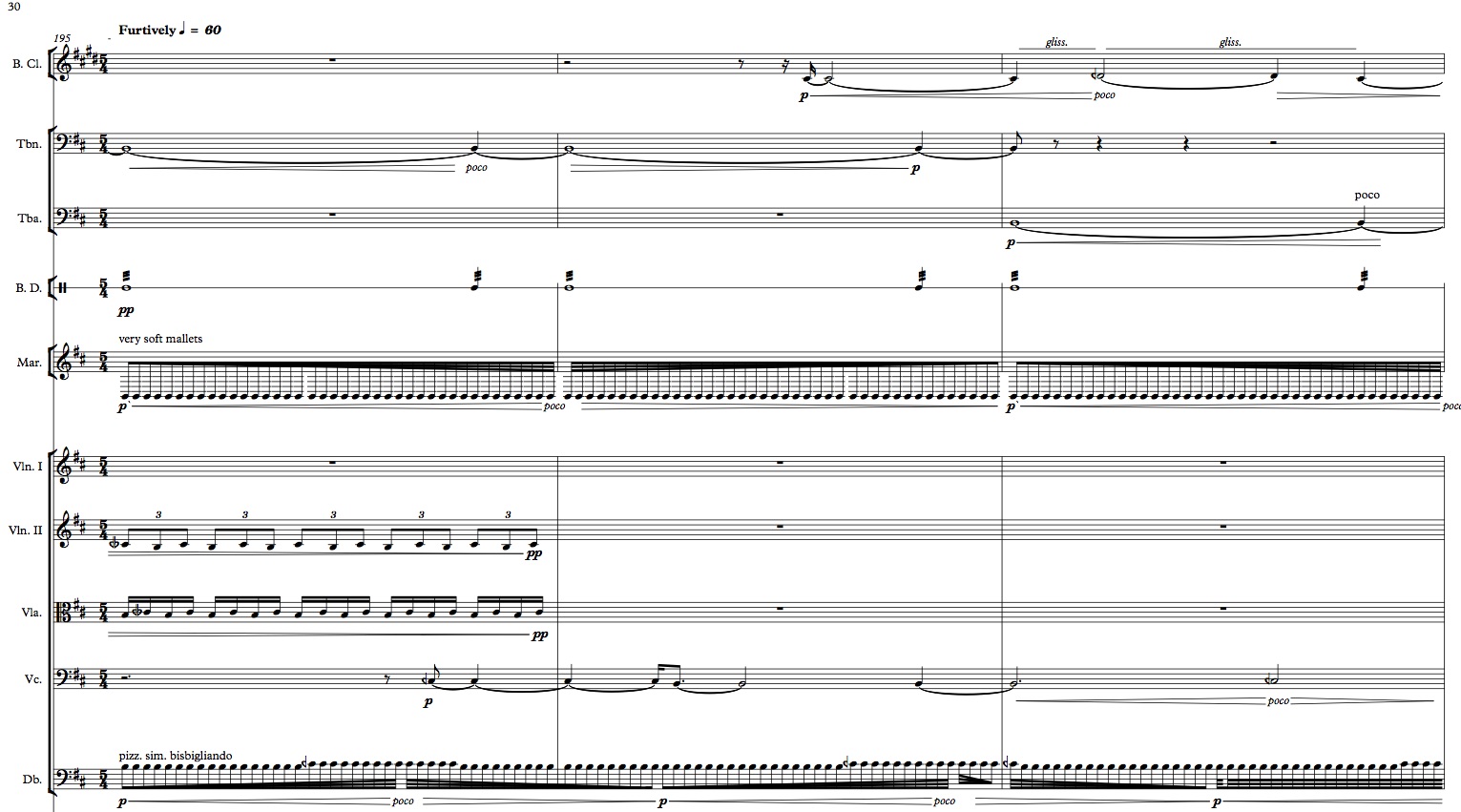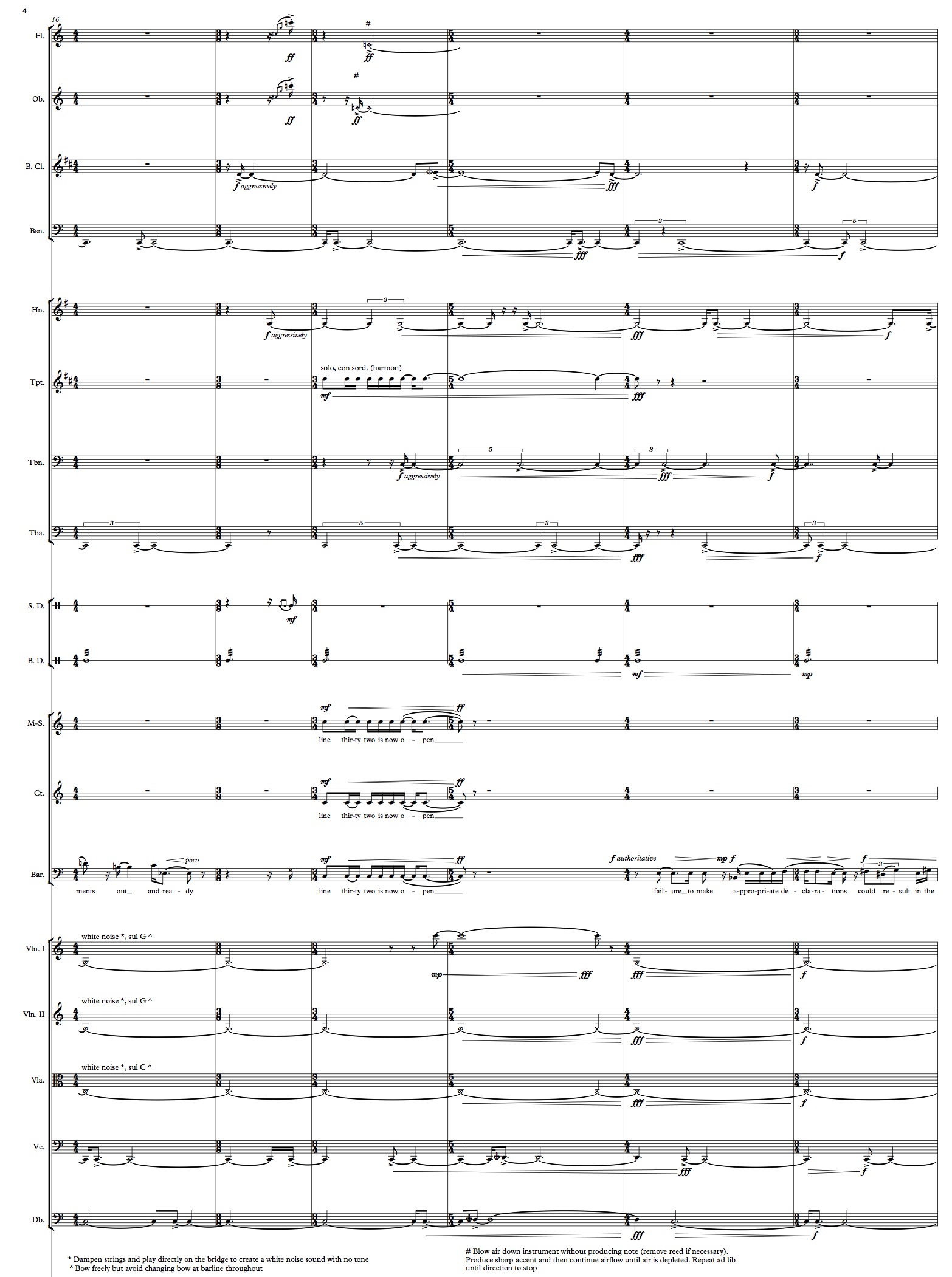Composer Soosan Lolavar, who is currently studying for a PhD at City, has recently received new public attention relating to her experiences in having her opera ID, Please performed in the United States. In this blog she writes exclusively in detail about the new work and her recent trip to the country, following the announcement by the new president Donald Trump of severe restrictions on entry to the country by those of Muslim origin, lending the opera a new topicality.
A year ago, when myself and the playwright Daniel Hirsch discussed a storyline for the opera that we would write together, we had no idea how acutely world events would become entangled in our work. At the time, I was living in Pittsburgh, Pennsylvania studying Iranian classical music at Carnegie Mellon University with the help of a Fulbright Scholarship. As a British-Iranian immigrant to the US (and as a human being) I was deeply disturbed by the rhetoric of the Republican primaries unfolding around us, particularly the much discussed ‘Muslim ban,’ supported in various gradations by every single Republican candidate. At the time (the halcyon days of early 2016) such a move seemed like grotesque political posturing: a racist and divisive move, but surely one that no sane candidate would ever actually enact. Against this backdrop we briefly considered writing an opera about Trump, but decided that he would likely be gone from public life by the time of the opera’s performance and so might seem like a strange choice of figure. In the end we settled on a piece about immigration, set at border control in an unnamed country and time and considering contemporary rhetoric on borders, nationalism and others.
In February 2017, five days before I was due to fly to the US to attend the rehearsals of our immigration-themed opera, ID, Please, I received the news that, due to my dual British-Iranian nationality, I was officially banned from entering a country I had called home for a year. My experience was, thankfully, incredibly short-lived, since soon enough the privilege of my British passport swung into action and dual nationals of the UK were given special dispensation to travel. This left me in a strange and ambivalent position that I continue to navigate. My situation received some media attention – ‘British-Iranian composer unable to attend rehearsals of her opera about immigration’ has a fairly nice ring to it – in which I struggled to prevent journalists from representing me as a poor, innocent victim of the order. My British privilege had already ensured that I would travel as normal while Iranian passport-holding friends of mine who lived in the US were now terrified for their immigration status. Moreover, unlike my hijab-wearing family, I am able to ‘pass’ as un-threatening at border control and avoid the ‘random’ extra checks they continually endure. This is not to say that I experienced immigration without fear. Due to my dual nationality, I carry a different visa from most British nationals which always elicits a question and the subsequent disclosure of my Iranian nationality. On landing at JFK I braced myself for extra questioning and, in an eerie echo of one of the lines from the opera, “clutched my passport so hard it made my hand hurt”. Oddly, in the end the officer asked me no questions at all. Perhaps he was just tired after a no doubt exhausting week, perhaps he forgot, or perhaps it was due to the fact that the Temporary Restraining Order on the bill had been enacted just four hours before I landed. I suppose I will never know.
Needless to say, the events of the past few months have brought the opera into terrifyingly sharp focus, with the shape of the work altering several times as a result. In reaction to world events, Daniel Hirsch added references to ‘building walls’, ‘checking their teeth’ and ‘a billionaire tyrant’, as well as an instance where a Muslim passenger is asked to visit a different queue on disclosure of her religion (eerily enough, this line was added before we could be sure the Muslim Ban was anything other than bloviating election rhetoric).
Despite these oblique contemporary references, the opera as a whole is located everywhere and nowhere, with the travellers representing everyone and nobody at all. Of a total of three singers, only the baritone border guard represents a fixed and conventional character. The other singers act as ciphers playing multiple travellers with no names, switching gender, religion and backstory dozens of times throughout the opera. Thus, while one singer proclaims themselves a refugee in one instance, they may disclose that they are a drug smuggler, a human-rights activist or a student soon after. The overlapping voice types of traveller one and two – mezzo-soprano and counter-tenor – similarly reflect the constant identity slippages that each singer engages in. Our intention was that the audience is left with a feeling of uncertainty of who anybody really is. Are any of us truly and completely honest at borders? Can the list of questions asked really enable you know someone? Is there such a thing as an innocent or a guilty person?
Moreover, as a result of such shifting characters, the work as a whole eschews a conventional narrative arc. A question I’m regularly asked is how many of the travellers make it through to the other side of the border. The answer is we have no idea. We focus on the plight of one person only briefly and, before we know the outcome, the action shifts to someone new. Here the story explores how individuality (and humanity) can be erased at borders as unique life experiences harden into case numbers. This is true both for travellers facing the power of the state, and for those that work at border control whose individualism is stripped away by a life of dull, repetitive tasks.
Against this backdrop and in terms of the music, I was keen to produce an environment with an overall feeling of instability, fear and mechanical, dehumanising repetition. I was particularly keen to ensure that repetition never felt safe or calming but always had a sense of instability or dread. One technique I used for this was shifting the rhythmic setting of particular reoccuring lines while keeping the melodic contour the same (see figure 1). This not only highlights the potentially ambivalent meaning of particular lines – for e.g. is “I do not like the way you look at me like that” a defiant statement of humanity or a fear of profiling? – but also created the feeling of a shifting foundation where the reality was never quite clear.
Fig. 1 From the mezzo-soprano aria ‘My hands are sweaty, my heart is racing’
Here the melodic contour is transposed down a fourth:
The same interrogation occuring at different points in the opera
The border guard questions travellers
However, the border guard repeats the phrase “anything else to declare?” several times throughout the opera with no changes made to its rhythmic setting. Moreover, he often presents questions to travellers sung entirely on one note. Both processes highlight him as a relatively powerless character, someone who is following orders and is dehumanised by their repetitiveness (see figure 2).
Fig. 2 Dehumanising the border guard
Further techniques that produce a feeling of instability include using mixed meters and syncopation to disrupt the pulse, and setting words so that the stresses fall unnaturally (see figure 3).
Fig 3.
In response to a question about their religious affiliation, traveller one (mezzo-soprano) responds, “Well, I don’t really have one, it’s kind of complicated”. In everyday speech, the stresses for this sentence might fall thus: “Well, I don’t really have one, it’s kind of complicated”. Instead, in this setting, strong beats fall on “Well, I don’t really have one”. Moreover, for “it’s kind of”, the triplet quaver is shifted by a semi-quaver so that a clear pulse is completely absent from the first few beats of the bar, and the first obvious strong beat falls in an unexpected location: “complicated”.
There are several further instances in the opera where a triplet quaver motif is shifted in order to disrupt a clear sense of pulse and stability, see figure 4.
Fig 4. Disrupting the sense of pulse by shifting a triplet quaver figure




A sense of uncertainty is not only produced through rhythmic instability but also through the fluctuation of pitch. There is a reoccurring theme of a low drone being interrupted by a quarter tone at several points throughout the opera (see figure 5).
Figure 5
B drone in marimba, trombone and tuba interrupted by C ¾♭ in bass clarinet, violin II, viola, cello and double bass
A drone on C disrupted by D ¾♭
This sense of pitch instability is further explored, particularly in a trumpet-cello duet which makes use of extreme vibrato, glissandi, ‘growling’ (a trumpet technique where the player sings into the instrument at the same time as playing, made popular particularly by big band jazz), and the use of a plunger mute to create the sense of an unstable pitch centre, see figure 6.
Figure 6
Pitch stability interrupted by various techniques
ID, Please has become a complex process through which I work through my feelings of instability in the new world order, my fears for immigrant communities across the world and my concerns for the safety of my family and friends. As a result of recent political events, I certainly feel a greater sense of responsibility to produce a piece of work that adequately represents the complexity of such positions.
The work will premier at Pittsburgh Opera on 1st April 2017 and will be live-streamed via the Carnegie Mellon University website with hopes to bring it to the UK in in the near future.















